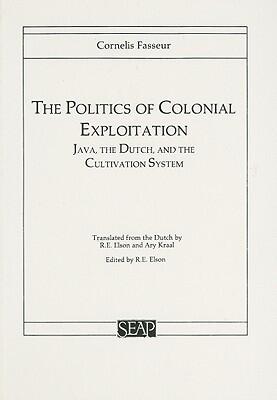
The Politics of Colonial Exploitation: Java, the Dutch, and the Cultivation System
Brak ocen
Format
Miękka okładka
Strony
266
Język
Angielski
Opublikowany
Jan 1, 1994
Wydawca
Cornell University Southeast Asia Program Publications
ISBN-10
0877277079
ISBN-13
9780877277071
Opis
In exploring the intricate dynamics of colonial power, this work delves deeply into the Cultivation System implemented in Java during the mid-19th century. Fasseur and Elson uncover the systemic exploitation that characterized this period, shedding light on the relationship between the Dutch colonizers and the local population. Their analysis reveals how this agricultural policy shaped economic practices, social structures, and the very fabric of Javanese life.
Through meticulous research and compelling narratives, the authors illustrate the profound impact of these colonial policies on the agricultural landscape of Java. They document the strategies employed by the Dutch to maximize profit at the expense of local welfare, bringing into focus the human stories behind the statistics. The consequences of these exploitative practices resonate far beyond the historical timeframe, influencing contemporary discussions about colonial legacies and post-colonial identities.
This examination serves not only as a historical document but also as a critical reflection on the ethics of colonial governance. The authors invite readers to contemplate the broader implications of such exploitative systems and the ongoing struggle for autonomy and recognition by those who were subjugated. The narrative ultimately emphasizes the need to confront the past to understand its lasting effects on modern society.
Through meticulous research and compelling narratives, the authors illustrate the profound impact of these colonial policies on the agricultural landscape of Java. They document the strategies employed by the Dutch to maximize profit at the expense of local welfare, bringing into focus the human stories behind the statistics. The consequences of these exploitative practices resonate far beyond the historical timeframe, influencing contemporary discussions about colonial legacies and post-colonial identities.
This examination serves not only as a historical document but also as a critical reflection on the ethics of colonial governance. The authors invite readers to contemplate the broader implications of such exploitative systems and the ongoing struggle for autonomy and recognition by those who were subjugated. The narrative ultimately emphasizes the need to confront the past to understand its lasting effects on modern society.
Recenzje
Nie ma jeszcze recenzji
Bądź pierwszy, aby zrecenzować tę książkę i podziel się swoimi przemyśleniami
Dodaj pierwszą recenzjęDziennik czytania
Nie znaleziono dzienników czytania
Zacznij śledzić swój postęp w czytaniu, aby zobaczyć logi tutaj
Dodaj swój pierwszy dziennik czytaniaNotatki
Dziennik transakcji
Nie znaleziono dzienników transakcji
Zacznij śledzić swoje transakcje książkowe, aby zobaczyć logi tutaj
Dodaj swój pierwszy dziennik transakcji